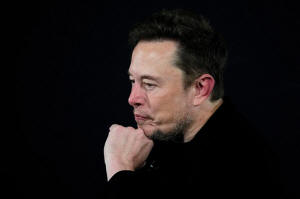|
OpenAI said Musk wanted the company to merge with electric
vehicle maker Tesla, and he forwarded an email that said the
startup should "attach to Tesla as its cash cow".
OpenAI said the suggestion came after Musk and the company
decided the next step was to create a for-profit entity in 2017
to generate capital for building artificial general intelligence
(AGI).
The billionaire entrepreneur then wanted majority equity,
initial board control, and to be CEO of OpenAI, the company
said.
But OpenAI and Musk could not agree to terms on a for-profit
because the startup felt it was against the mission for any
individual to have absolute control over the firm.
In his lawsuit, Musk said OpenAI's three founders originally
agreed to work on AGI, a concept that machines could handle
tasks like a human, but in a way that would "benefit humanity,".
Musk also pushed OpenAI to announce an initial $1 billion
funding commitment in 2015, after CEO Sam Altman and co-founder
Greg Brockman initially planned to raise $100 million.
"We're sad that it's come to this with someone whom we've deeply
admired—someone who inspired us to aim higher, then told us we
would fail, started a competitor, and then sued us when we
started making meaningful progress towards OpenAI's mission
without him," OpenAI said.
Musk and Tesla did not immediately respond to a Reuters request
for a comment on the blog.
Musk's lawsuit is a culmination of his long-simmering opposition
to the startup. OpenAI has since become the face of generative
AI, partly due to billions of dollars in funding from Microsoft.
Musk went on to found his own artificial intelligence startup,
xAI, launched last July.
(Reporting by Abinaya Vijayaraghavan in Bengaluru; Editing by
Rashmi Aich)
[© 2024 Thomson Reuters. All rights
reserved.]
This material may not be published,
broadcast, rewritten or redistributed.
Thompson Reuters is solely responsible for this content.

|
|




